With the theme: "New Pattern, New Development, and New Finance", the 2021 Tsinghua PBCSF Global Finance Forum was held in Beijing on May 22 and 23. Distinguished guests from the government, industry and academia were invited to deliberate on the current and future of China and the world economy and finance under the pandemic, from the perspectives of "China and the World", "Reform and Policies", and "Academics and Practices". The forum was held on-site and broadcast live through the official media Tsinghua PBCSF Online, and over 70 co-operating media outlets in English and Chinese.

The forum was hosted by Tsinghua University, co-organized by the PBC School of Finance and the Institute for National Governance and Global Governance at Tsinghua University, and supported by the Tsinghua University National Institute of Financial Research (NIFR) and the Tsinghua University Institute for Fintech Research (THUIFR).
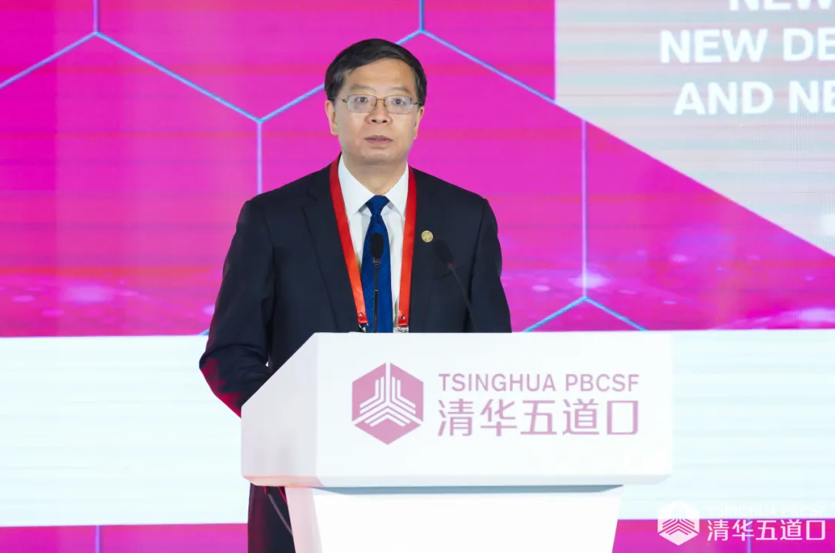
At the Opening Ceremony, Qiu Yong, President of Tsinghua University and member of the Chinese Academy of Sciences, delivered the keynote speech. He said that the outbreak of covid-19 had brought an enormous shock to the global economy, and had led to serious transformation. China was making progress in containing the virus and in economic recovery. Finance, as a core strength of a nation, should effectively support its national and world development. With the theme “New Pattern, New Development and New Finance”, the forum would bring about the most forward thinking and an effort to contribute to economic and financial recovery and development. 2021 marked 110th anniversary of Tsinghua University and 40 years of anniversary of Tsinghua PBCSF. Tsinghua University was constantly putting emphasis on disciplinary construction. It was of great hope that Tsinghua PBCSF would make more progress in building a platform for exchange for academia and industry at home and abroad, and in promoting disciplinary and academic studies and contributing to national and world development.
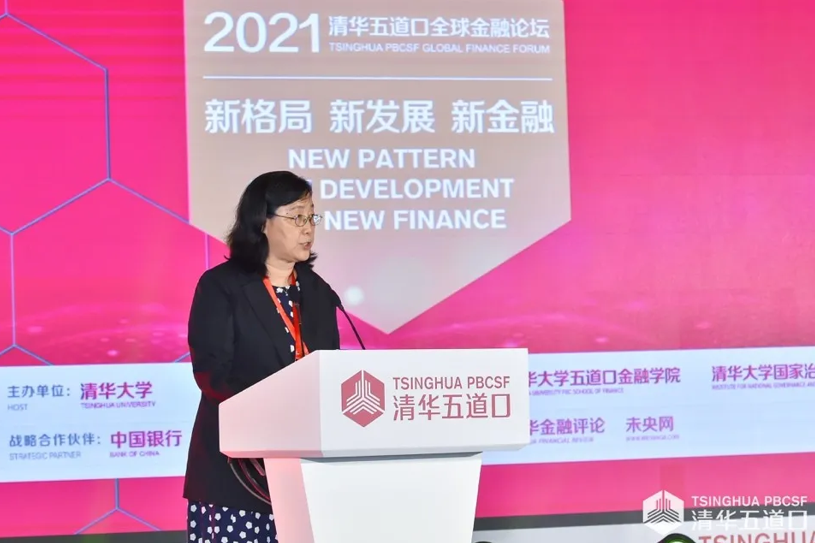
Zhang Xiaohui, Dean of Tsinghua PBCSF, delivered the following opening speech. She said that, while China was making progress in fighting covid-19, we could see that the internal and external environment was becoming more and more complex and uncertain. With the measures for covid-19 prevention, China’s economy was gradually returning to a new normal. But the basis for recovery was not yet stable, and the pace of recovery was not exactly the same among different sectors. Household consumption was undergoing a slow recovery and the index is still relatively low compared to that before the pandemic, which serves as a reminder that the long term shock brought about by the pandemic was far more complex than the figures in the report showed. With the promotion of vaccination, there were weak signs of recovery in the global economy, but the "turning point" for a full global economic recovery had not yet come. Finance as the core pillar of the economy should take on responsibility for the promotion and construction of new development patterns.
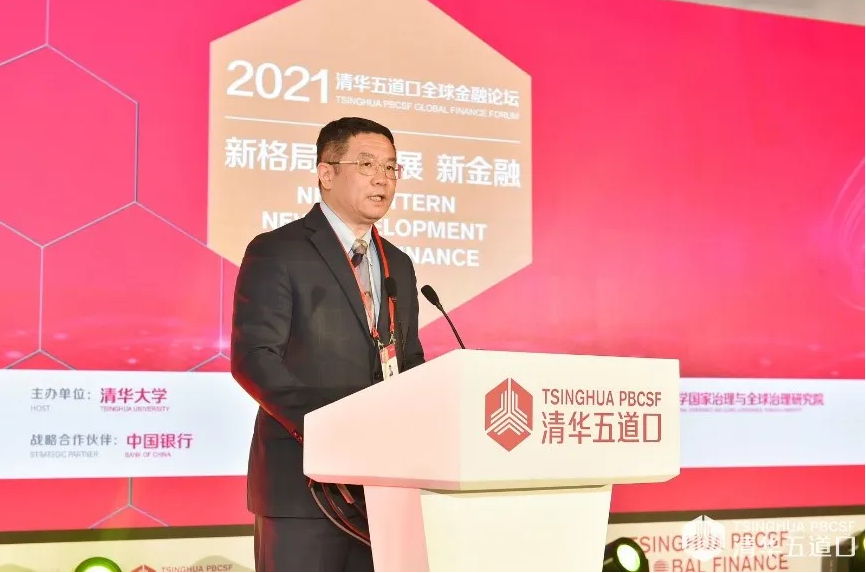
The opening ceremony was hosted by Liao Li, Professor and Executive Associate Dean of Tsinghua PBCSF.
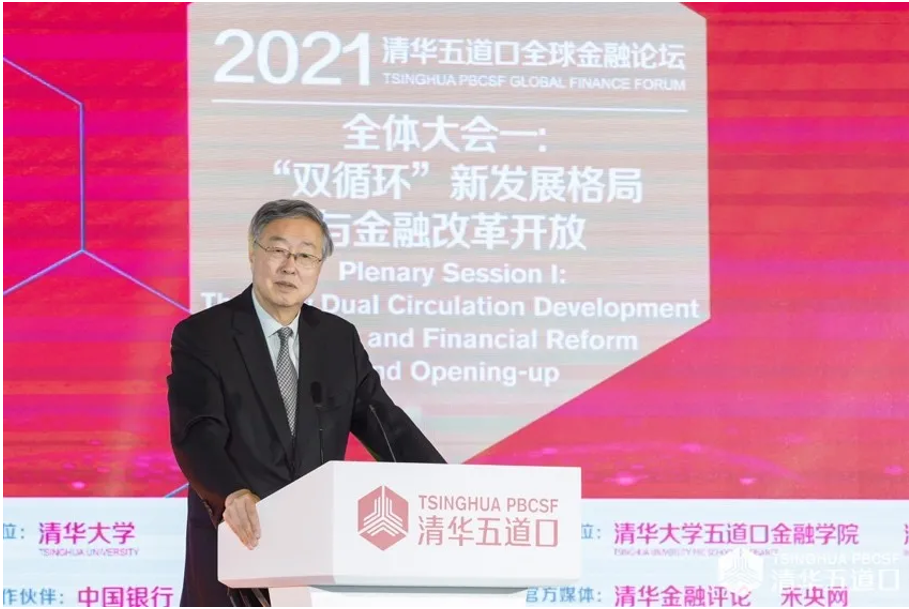
In the Plenary Session I "The New Dual Circulation Development Pattern and Financial Reform and Opening-up", Zhou Xiaochuan, President of the China Society for Finance and Banking and Honorary Dean of Tsinghua PBCSF, made the keynote speech. He said that digital currency and e-payment were the most popular international topics for the time being, where China was also paying great attention. However, concepts needed to be clarified and further specified on the subject matter in media coverage and discussion. China needed to improve its communications so that the international community could have a better and clearer understanding of the progress and development in China's DECP and e-CNY. As for the internalization of the CNY, whether a currency was accepted by the community would mostly depend on its economic volume, trade volume, degree of opening up, and even its resilience to shocks. CNY's inclusion in the SDR by the IMF indicated that the CNY had made great improvements in its liquidity.
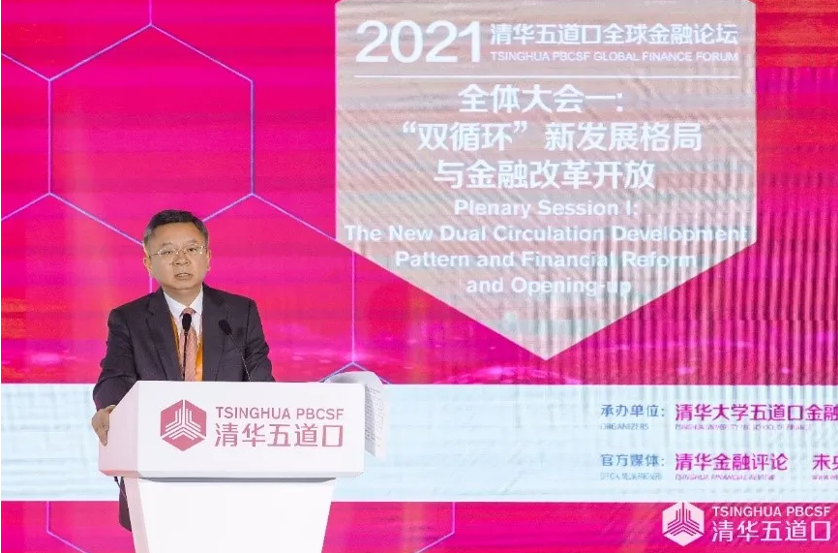 Li Bo, Vice President of the People's Bank of China, said that China's "twin-pillared regulatory framework" of monetary policy and macro-prudential policy was still at an early stage and faced a number of challenges and problems: firstly, the framework of macro-prudential policy was not yet sound and mature; secondly, there was still room for further improvement. The financial sector could address these two issues in the following three ways: firstly, strengthen the coordination of the twin-pillared regulatory framework, continue to promote the shift from a quantitative-based regulatory framework to a price-based regulatory framework, and enhance the rules and transparency of monetary policy operations; secondly, the macro-prudential policy framework should be further improved; and thirdly, refine the financial regulatory framework to make it more effective, efficient and consistent with China's modern financial industry.
Li Bo, Vice President of the People's Bank of China, said that China's "twin-pillared regulatory framework" of monetary policy and macro-prudential policy was still at an early stage and faced a number of challenges and problems: firstly, the framework of macro-prudential policy was not yet sound and mature; secondly, there was still room for further improvement. The financial sector could address these two issues in the following three ways: firstly, strengthen the coordination of the twin-pillared regulatory framework, continue to promote the shift from a quantitative-based regulatory framework to a price-based regulatory framework, and enhance the rules and transparency of monetary policy operations; secondly, the macro-prudential policy framework should be further improved; and thirdly, refine the financial regulatory framework to make it more effective, efficient and consistent with China's modern financial industry.
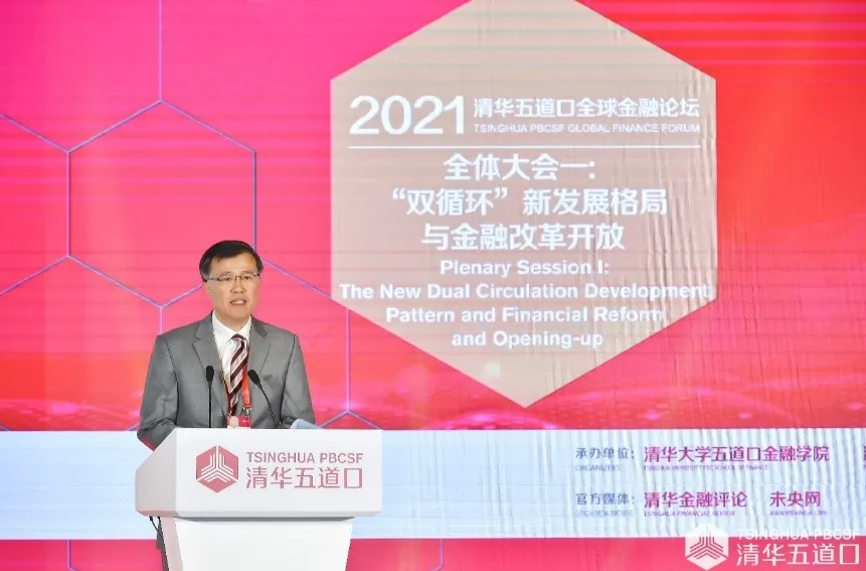
Xiao Yuanqi, Vice Chairman of the China Banking and Insurance Regulatory Commission (CBIRC) said in his speech that coping with climate change would help expand the boundaries of financial production. While Green Credit was facing vast development opportunities, climate change and green and sustainable development had become a global consensus which the financial sector was also paying more attention to. There existed more opportunities here for the financial sector. Addressing climate change would create an unimaginable comparative space for the financial sector, and would also significantly shift the point of the financial production possibility curve, expanding the maximum possible frontier for long-term financial growth.
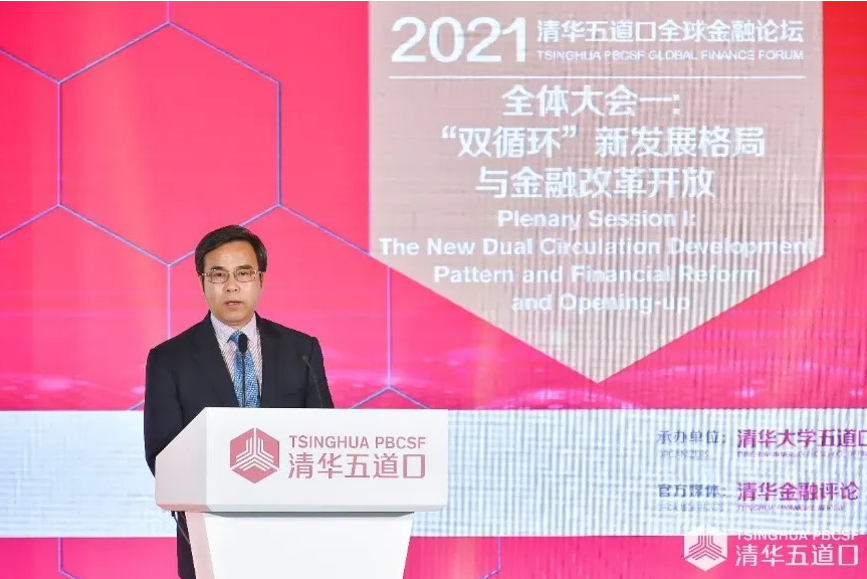
Liu Liange, Chairman of the Bank of China (BOC), pointed out that although China's economic development was facing more external challenges at this stage, it also had new dynamics: traditional consumption was expanding and increasing, while new consumption continued to emerge; there was still room for the development of traditional infrastructure, while the demand for new infrastructure was increasing; industry was transforming towards becoming advanced, intelligent and digitized, with innovation becoming the core driving force; international competition and cooperation were embracing a new landscape while regional multilateral trade offered new opportunities; the green economy could become a new development engine. As for how banks could support industrial upgrading, the first answer was to strengthen banks' support for innovation activities, as well as to provide full-cycle, differentiated and multi-channel capital support for industrial development. Also, banks should develop supply chain finance and optimize production capacity, so as to help companies better integrate domestic and international markets.

Michael Spence (left) talks with Wei Chenyang, Deputy Chair of THUIFR, and Director of the China Insurance and Pension Research Center, NIFR (right)
Michael Spence, Nobel Laureate in Economics 2001, joined the forum through an online connection. He pointed out that despite problems encountered during the way, with the measures of vaccination, the global economy would be recovering this year. Measures such as the vaccines’ mandatory licensing, manufacturing capacity and others were needed at the current stage at a policy level. There were also certain concerns regarding inflation in U.S. economy. With regard to China’s concept of "dual circulation" growth model and opening-up policy, the concept was partly self-efficient, and it was inevitable, and even sensible. It may not be "the most globally efficient solution", but it certainly worked. For China, to balance the gap between low household consumption, thus aggregation demand, and large investment, the intention of "dual circulation" was right on target. In forward thinking, the digital economy, biological technology and science, and energy transition would have the greatest potential for growth and in relation to the global economy.
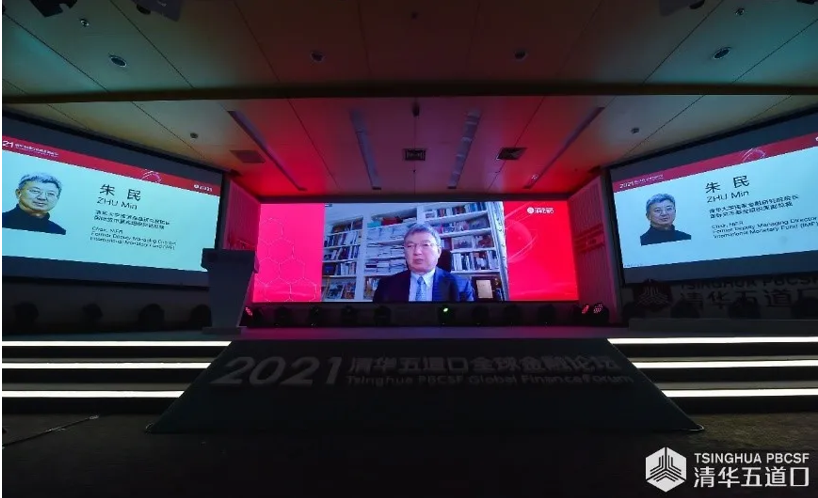
In Plenary Session II "Global Economic Governance under the Changing World", Zhu Min, the Chair of NIFR and former Deputy Managing Director of the International Monetary Fund (IMF) shared with the audience that the covid-19 epidemic situation showed that global economic governance systems were lagging behind, and could not effectively provide global public goods. The global economic structure was changing rapidly, especially the new economy and the economic growth of developing countries. The existing economic governance mechanism could not reflect the changes in the global economic structure. The global economic mechanism established since 1945 had been far behind the current needs of science, the environment, technology and social development, which had brought about a series of new problems. A new global governance mechanism was needed to provide global public goods.

In the followed speech, Kevin Rudd, the former Prime Minister of Australia, said that one of the problems in global governance was that the major organizations existed, but they needed "political oxygen". The challenge lay in the ability to use combined capital to break through logjams, and to empower the full multi-lateral institutions to do their job.
Two reports of the 2021 Semiannual Report of China’s Systemic Financial Risk and China Financial Policy Report 2021 were released at the Forum.
During the two-day forum, in-depth discussions were held about issues of concern for global and China’s financial development, including: "The New Dual Circulation Development Pattern and Financial Reform and Opening-up", "Global Economic Governance under the Changing World", "Building the New Order of Financial Supervision", "Digital Economics Boosting Global Economic Recovery", "Development Prospects of Infrastructure REITs", "Science and Technology Promoting High-Quality Development of Finance Innovation", "Report Release China Financial Policy Report 2021", "Capital Market Motivating Technology Innovation", "Finance-Driven High-Quality Development of Culture and Tourism Industry", and "The New Normal of Global Tech-Driven Insurance and Pension Industry".
The 2021 Tsinghua PBCSF Global Finance Forum successfully concluded on May 23. In its 7th year, the Forum is attracting wide attention at home and abroad, and aims to become a high quality exchange platform throughout the world.
From Tsinghua PBCSF
Editors: Li Han, John Olbrich

